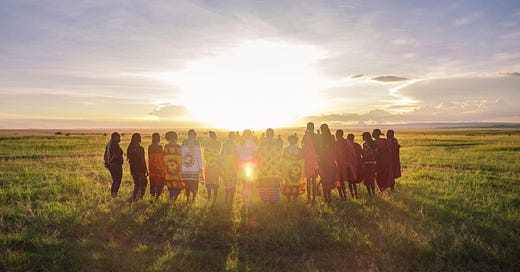Travel for Change: Empowering Women, Combating Gender-Based Violence
Meet the advocacy travel brand using tourism as a force for change
Megan and I met about two years ago when she came across my work through my partnership with Women Who Travel at Condé Nast Traveler and reached out. From that moment, I became a huge fan—not just of her as a person (she’s a total badass and a beautiful human) but also of the travel brand she’s building.
But what she’s creating is more than just a brand—it’s a movement. I hope this conversation resonates with you as deeply as it did with me because her work isn’t just shaping the future of travel; it’s driving real, lasting impact—empowering women, fostering community, and challenging the status quo in the industry.
What inspired you to start Sororal, and what gap did you see in the travel industry regarding gender equality?
I started Sororal because travel has always been deeply personal to me—it’s shaped how I see the world, but also how I understand safety, independence, and connection as a woman. The travel industry often markets adventure, discovery, and freedom, but for women, those experiences come with an added layer of risk. I saw a gap in how the industry talks about and addresses women’s safety, economic security, and leadership. Women are the backbone of global tourism, yet their work is undervalued, and they often lack ownership and decision-making power. Sororal is about changing that—centering women in travel, both as travelers and as industry leaders.
Mainstream travel—especially adventure and cultural tourism—has long been designed with a male lens. Women face safety concerns that men often don’t consider. At the same time, women make up the majority of the tourism workforce but hold a fraction of the leadership roles, and they are often underpaid or excluded from the financial benefits of the industry.
We saw a need for a travel company that centers women—not just as travelers but as business owners, guides, artisans, and decision-makers. Sororal works directly with women-led businesses, ensuring that tourism dollars stay in the hands of the people who need them most. Beyond that, we address the reality of travel for women—whether it’s creating safer, well-informed experiences or reshaping the narrative of what experiential travel looks like for us.
But it wasn’t just about economics—it was about connection. There was a deep, undeniable craving for women to come together post-pandemic, to share experiences, support one another, and rebuild the sense of community that had been fractured. Women wanted more than just trips; they wanted spaces where they could deeply connect across cultures and realize that, no matter where we come from, we are often more aligned than we are different.
There are also very few organizations that take this truly bold and feminist-forward approach to travel. Many travel companies avoid the harder conversations—about safety, about economic disparity, about gendered power structures in tourism. But we don’t. We are unapologetic in calling out what works and what clearly doesn’t in the industry. We are reshaping the narrative around who gets to lead in travel and why that matters.
How does Sororal blend travel with advocacy? Can you share an example of a trip or initiative that’s had a real impact?
At Sororal, travel isn’t just about experiencing new places—it’s about actively supporting the women who shape those destinations. Our approach is deeply rooted in advocacy, economic security, and the fight for gender equality. Every experience we offer is built on feminist principles of trust, collaboration, and accountability, ensuring that our impact is meaningful and community-led.
A powerful example of this is our work in Kenya, particularly our partnership with Usikimye, an organization providing emergency support, safe houses, and advocacy for survivors of gender-based violence. Our travelers have the opportunity to meet with Njeri Migwi, Usikimye’s Executive Director, to hear firsthand about the challenges women and children face when fleeing violence. But more importantly, we listen—we don’t dictate what we think they need, but instead take their lead, allowing the women within their own communities to define their experiences and their path forward.
This commitment to listening and supporting feminist-led movements is at the core of how we operate. We don’t just travel to a place—we stand in solidarity with the women shaping its future. This extends to how we approach philanthropy—we believe in shifting power, lifting the voices of grassroots organizations, and advocating alongside them rather than speaking for them. With every trip, Sororal makes a financial contribution to a local nonprofit partner, ensuring that resources are directed toward those who need them most.
We also recognize that our work ties into a global movement for equality, aligning with the United Nations Sustainable Development Goals (SDGs). These 17 goals lay out a blueprint for a more equitable and sustainable world, and at Sororal, we’ve built our business model around SDG 5: achieving gender equality and empowering all women and girls. The statistics remain alarming—at the current rate of progress, the UN estimates it will take:
• 286 years to close gaps in legal protection and remove discriminatory laws.
• 140 years for women to be equally represented in workplace leadership.
• 47 years to achieve equal representation in national parliaments.
We know we can’t do it all—but we believe in the power of doing what we can. By intentionally partnering with women-led businesses, grassroots organizations, and feminist movements, we use travel as a tool for change. And beyond economic impact, we foster global connections that empower women everywhere. When women from different backgrounds come together, share experiences, and exchange knowledge, we strengthen the global movement for gender equality.

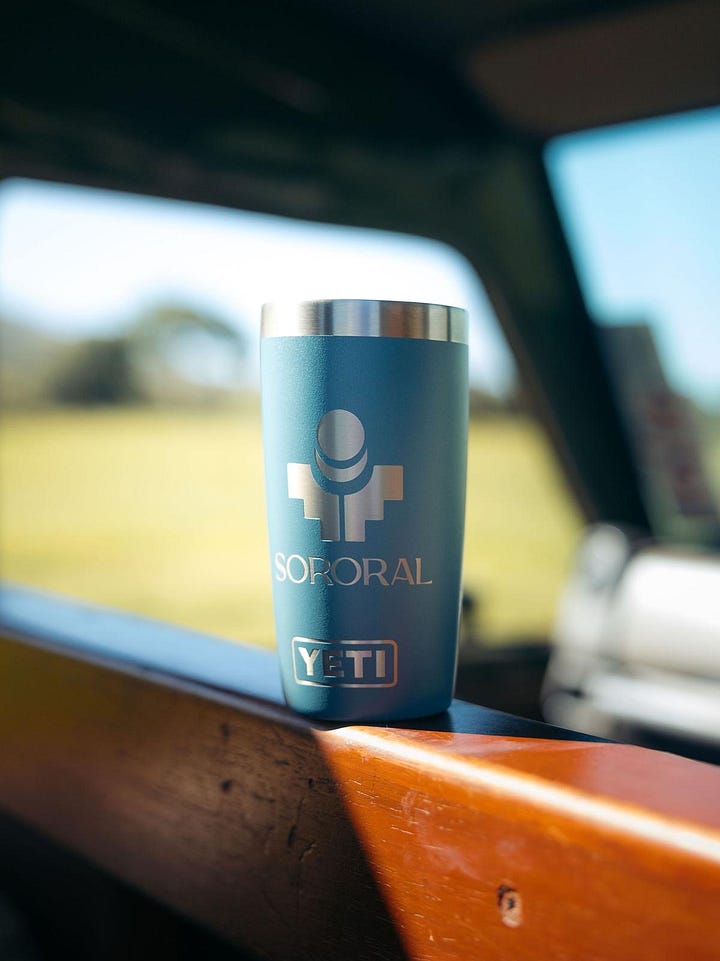
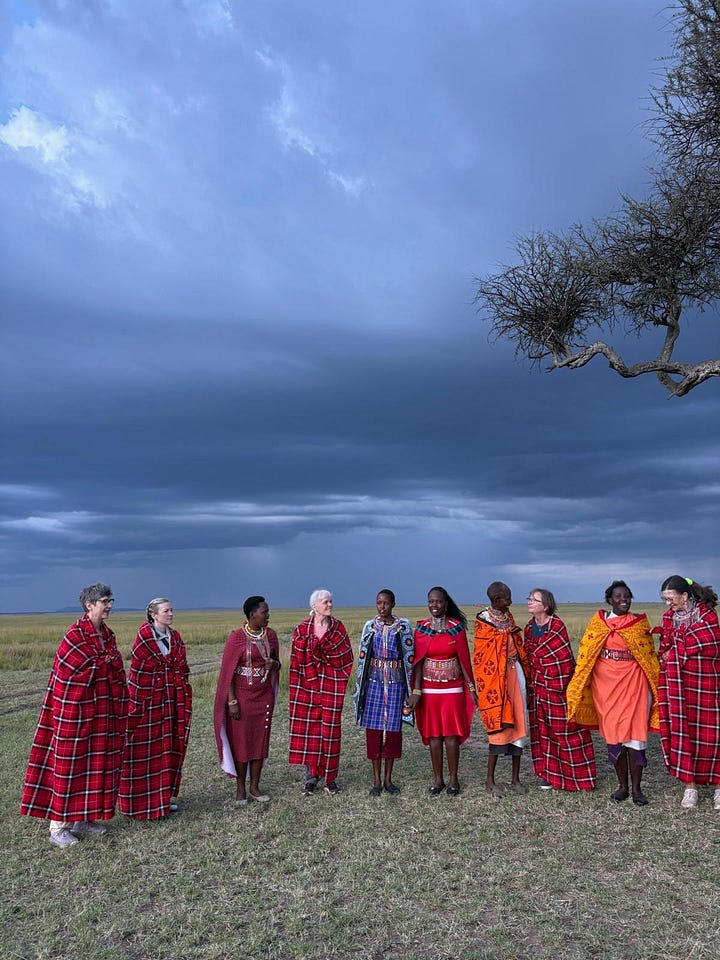
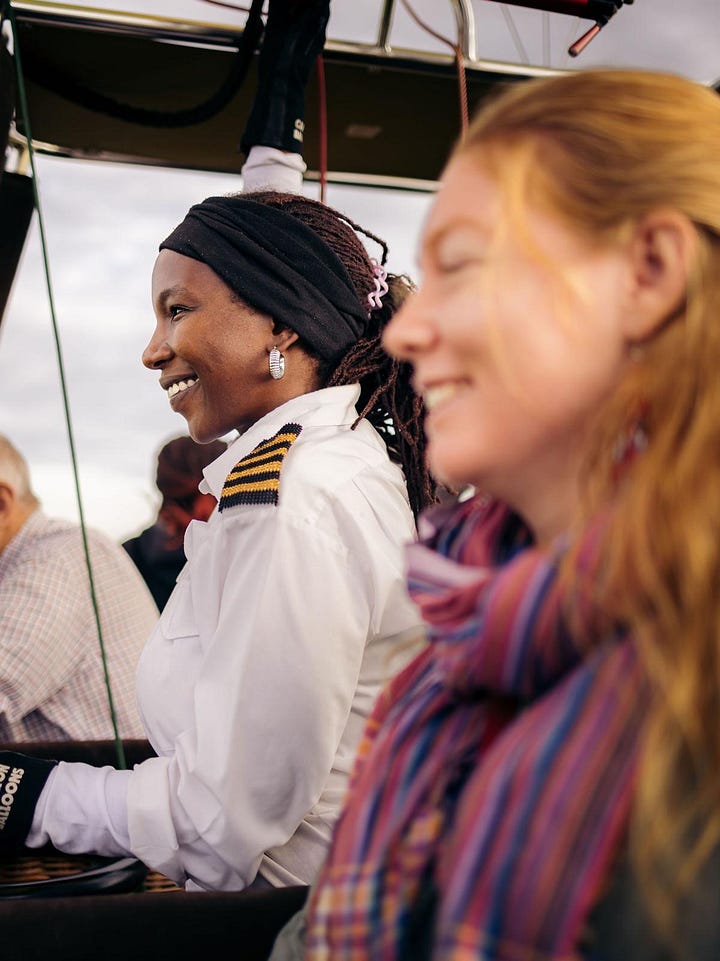
Travel is often seen as a form of freedom, but safety is still a major concern for many women. How does Sororal address this?
We believe a safe woman is an informed one. Sororal prioritizes safety in every aspect of travel, from the partners we work with to the way we structure our experiences. We build relationships with women-led businesses and local experts who understand the realities of navigating their destinations safely, ensuring that our travellers have the best possible support network.
But safety isn’t just about choosing the right accommodations or avoiding certain areas—it’s about access to real, unfiltered information. Too often, travel safety advice for women is vague, dismissive, or fear-driven. At Sororal, we go beyond generic tips to provide practical, situational knowledge that empowers women to make informed decisions. Our Afield Guides include honest conversations about risks, cultural considerations, and strategies for both solo and group travel, ensuring that women have the tools they need to feel confident and secure.
Beyond our guides, we are actively working to shed more light on the data and statistics around women’s safety abroad. Through our Travel & Truth Campaign, we are highlighting the realities of travel for women—not just through storytelling but by pushing for greater transparency and industry-wide accountability. We know that gender-based violence, harassment, and exploitation are global issues, and travel doesn’t happen in a vacuum. Women deserve clear, evidence-based resources that help them assess risk, set boundaries, and travel on their own terms.
To further this mission, we are pursuing partnerships with like-minded organizations that are committed to women’s safety, both within and beyond the travel industry. Whether it’s collaborating on data-driven research, amplifying the work of women-led safety initiatives, or advocating for policy changes that prioritize traveler protection, we are committed to using our platform to push for real change.
At Sororal, we refuse to accept the idea that safety is just a “women’s issue.” It is a global concern that requires systemic solutions, industry accountability, and open dialogue. Travel should be a form of freedom, and we are committed to making that freedom a real and accessible reality for women everywhere.
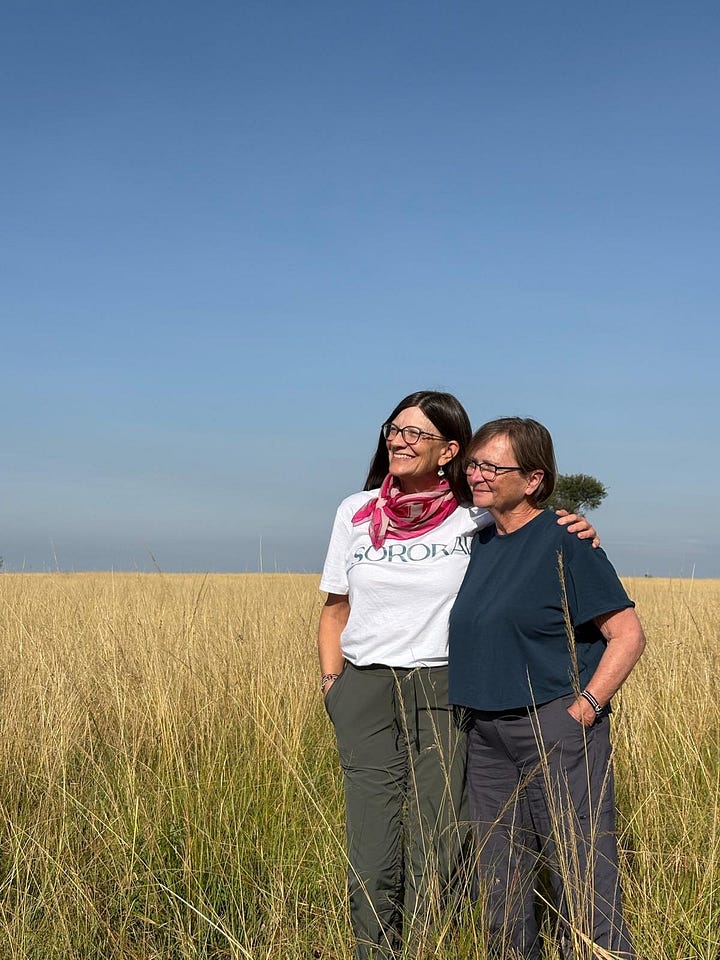


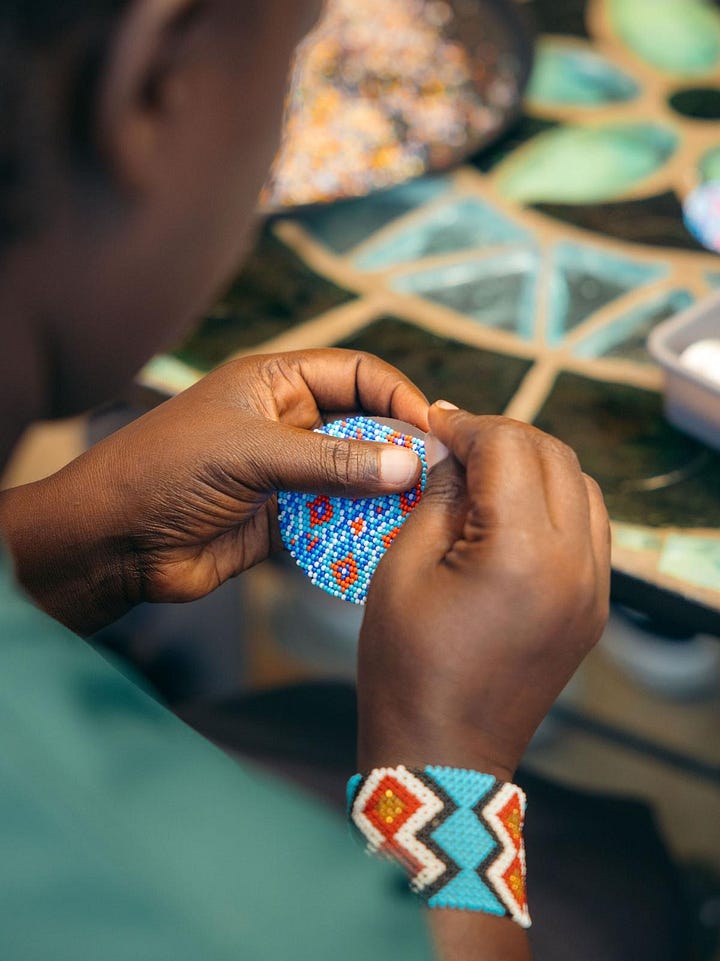
Gender-based violence is a global issue—how do you see travel as a tool to fight it?
This is actually a really simple answer! Tourism is one of the world’s largest industries, employing millions of women—but too often, women are left out of leadership roles or stuck in low-wage positions. If travel is done thoughtfully, it can be a powerful tool for change. By choosing where and how we spend our money, travelers can uplift women-led businesses, challenge exploitative practices, and promote ethical tourism.
At Sororal, we use travel as a tool to support women’s economic independence, which is a proven factor in reducing gender-based violence. When women have financial security, they have more control over their choices, their safety, and their futures. We also use our platform to advocate for policy change, highlight grassroots anti-violence organizations, and educate travelers about the realities women face in different parts of the world.
Beyond that, travel fosters understanding. When women from different backgrounds come together, share experiences, and exchange knowledge, it strengthens the global movement for gender equality. And on a very basic level, building connections with women all over the world means that if you ever decide to travel solo—or just need support, a conversation, or a fresh perspective—you already have a long list of women you know, have connected with, and can rely on. That kind of global sisterhood is powerful, and it’s something that traditional travel just doesn’t offer.
I’ve had just as many meaningful conversations with a 20-year-old Moroccan guide as I have with a Kenyan LGBTQ2S+ advocate and my Canadian travelers who share my background. Travel and the connections we make open us up—emotionally, ethically, and physically. It challenges us to see beyond our own experiences, to listen, and to recognize that while our circumstances may differ, the threads of our stories are often deeply connected.
5. According to UN Women, gender-based violence affects 1 in 3 women worldwide, with risks often heightened during travel—whether through harassment, exploitation, or lack of safe accommodations. In many destinations, women’s freedom of movement is still restricted by systemic inequalities. How does Sororal use travel as a tool to combat gender-based violence? Can you share specific initiatives—such as partnerships with women-led businesses, safety-focused travel programs, or advocacy campaigns—that help create safer, more empowering experiences for women on the road?
Travel can be a tool for empowerment when it actively supports women’s safety, economic independence, and leadership. At Sororal, we do this by partnering with women-led businesses, ensuring tourism dollars directly benefit women, and by providing practical, unfiltered safety insights through our Afield Guides and Travel & Truth Campaign.
We also support grassroots organizations working to end gender-based violence, contributing funds based on their needs—whether for legal aid, safe houses, policy work, or even building essential infrastructure like kitchens and community spaces for women. Rather than imposing solutions, we listen, learn, and take direction from the women leading these efforts.
Systemic change takes time, but by centering women in travel, amplifying their voices, and directly investing in their security and success, Sororal is proving that travel can be a force for real, lasting change.
There’s a growing demand for ethical tourism. What do you think the travel industry needs to do better when it comes to gender equity?
The travel industry loves to market “empowerment” to women, but real gender equity requires systemic change, not just branding. Women make up the majority of the tourism workforce, yet they are underpaid, undervalued, and underrepresented in leadership roles. The industry needs to shift from using women as a selling point to actually investing in their success—ensuring fair wages, ownership opportunities, and safer working conditions.
Travelers also have a role to play. Ethical tourism isn’t just about sustainability or cultural sensitivity—it’s about who profits. We need more transparency about where tourism dollars go and a stronger commitment to supporting women-led businesses and ethical labor practices.
Ultimately, the industry must move beyond performative “female-friendly” initiatives and actively break down the economic and safety barriers that keep women from fully benefiting from travel—whether as workers, business owners, or travelers themselves.
What’s been the most rewarding or eye-opening moment in this journey so far?
Impact doesn’t always look how you expect it to. When we started Sororal, we thought the most powerful part of this work would be the direct support we provide to women-led businesses. And while that’s true, we’ve realized that the ripple effect is just as important.
Sometimes, it’s a traveler leaving with a new perspective and then going home to mentor a young woman in her own community. Other times, it’s a conversation between a traveler and a local guide that sparks a business idea or a long-term collaboration. The real power of Sororal isn’t just in the trips themselves—it’s in the relationships, ideas, and actions that continue to grow long after the experience ends.
One of the most rewarding aspects has been how well-received Sororal has been—not just by travelers but by industry veterans as well. People who have spent their careers in tourism have told us they’ve never seen anything quite like what we’re doing, especially in how outspoken, bold, and unapologetic we are in addressing women’s safety, economic security, and leadership in travel. The appreciation and respect we’ve received for pushing these conversations forward have been incredibly validating.
On a personal level, one of the hardest lessons I’ve learned is that building a business in travel is not easy—especially without a sales background. The market is shifting, traditional platforms aren’t as effective, and reaching the right travelers has been more challenging than I ever expected. Selling something you pour your heart into can feel soul-sucking at times—you want people to see the value, to understand it.
If someone wants to get involved with Sororal—whether through travel, advocacy, or support—where should they start?
Come on one of our trips! Your support means everything—not just to us as a growing business but to the countless women we support through our tours and advocacy work.
If joining a trip isn’t an option, you can still be part of the movement. Engage with our work—join our community, start conversations about key issues in travel, refer a friend, or share our content. The more people we bring into the conversation, the more we can push for real change.
Know a company we should collaborate with? Tell us! If you own a business and want to partner with us, or if you’re interested in sponsoring a victim of violence to go on one of our trips, please reach out.
Women’s safety, economic security, and leadership in travel deserve more attention, more action, and more voices speaking up. Let’s make sure these conversations—and the women behind them—are impossible to ignore.
On the Go
If you could take one Sororal traveler on a journey of a lifetime, where would you go and why?
KENYA. Everyone—and I mean EVERYONE—should go on safari at least once in their life. It is literally life-changing. Full stop.
What’s one small action a traveler can take today to support gender equality while exploring the world?
Shop women-owned. Stay women-owned. Support women-owned. Once you start doing it, it becomes second nature—you’ll find yourself actively seeking out women-led businesses everywhere you go.
What’s the best book you’ve read during your travels?
This is a tough one to narrow down. The first few that come to mind are The Yacoubian Building by Alaa Al Aswany, Girls of Riyadh by Rajaa Al Sanea, and A Woman in Arabia: The Writings of the Queen of the Desert—a collection of diary entries by Gertrude Bell.
There’s definitely a theme here. :)
What’s your ultimate dream destination for Sororal, and why is it so special to you?
In Canada, I would love to take Sororal travelers up north—to Nunavut, Yukon, or the Northwest Territories. There is so much we can learn from Indigenous and Inuit women and elders, from storytelling to survival skills to cultural resilience. I also think it’s critical to continue amplifying the conversations around missing and murdered Indigenous women and girls (MMIWG) in Canada—a tour like this I think can be a tool for education, awareness, and allyship.
Internationally, I would say India or Vietnam. Both have deep, complex histories where women have played critical roles in shaping society—whether in business, politics, or cultural traditions. These countries have thriving women-led industries, strong activist networks, and rich creative legacies that I’d love Sororal travelers to engage with firsthand.

